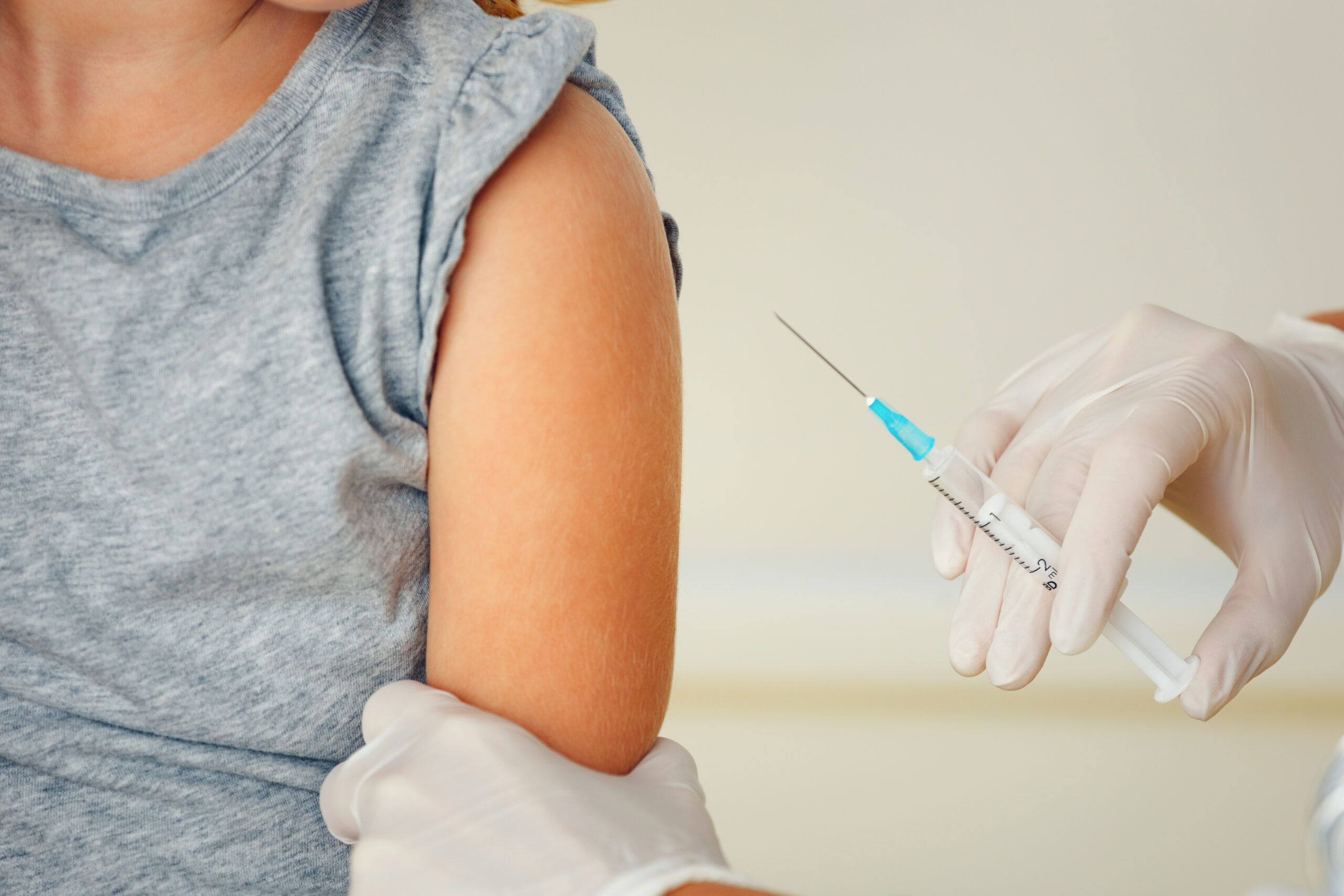At Forest Lane Pediatrics, staff volunteered to vaccinate children on the first Saturday after the vaccine was made available to ages 5 to 11. The clinic was already short-staffed, but for five hours on that Saturday outside of normal business operations, they delivered 200 doses of COVID-19 vaccines.
On the following Saturday, they did it again. Dr. Damien Mitchell, a partner at Forest Lane, says that he expects demand for the vaccine to stay strong during the holidays as families stick around to get their first and second doses. “There definitely was a big demand, and it was a big stress on us to be able to meet that demand,” he says. “That’s going to be an ongoing problem that we’re continuing to navigate.”
The demand has been much quieter across town at Parkland’s community clinics. There were no extra hours, no lines around the corner. At one of the eight Community Oriented Primary Clinics that Parkland runs, there were no more than 15 to 20 child vaccinations for the entire week. “It’s more of a trickle and a gradual increase,” says Dr. Donna Persaud, the medical director of Parkland’s Homeless Outreach Medical Services. “It’s a slow start.”
Since the vaccines were made available last month, the county’s public hospital system has vaccinated a total of 611 children. The slower demand is part of a larger pattern of lower vaccination rates of those living in poverty, people who are more likely to go to one of Parkland’s clinics because they lack private insurance. Data from the Centers for Disease Control and Prevention found that uninsured children are less likely to receive other vaccinations than those with insurance. A 2017 study found that only 75 percent of uninsured children aged 19 to 35 months received one dose of the measles, mumps, rubella vaccine, compared to 94 percent of those with private insurance.
Black and Hispanic children are more likely to be negatively impacted by COVID-19, but, per the available data, White and Asian children are being vaccinated at much higher rates, the Kaiser Family Foundation found. The parents of unvaccinated children are more likely to report barriers like cost and transportation.
Access, education, and trust in the medical system are all factors that keep vulnerable populations from achieving higher vaccination rates. All vaccines are free for children, even if they are uninsured or enrolled through Medicaid.
“We have a high uptake of children’s vaccines when recommended (during a doctor’s visit), but this is lower than the other vaccines,” Persaud says. “This isn’t unusual whenever there’s a brand new vaccine. It takes a little while for parents to feel comfortable with it, so that’s not surprising.”
At TLC Pediatrics of Frisco, Dr. Marcial Oquendo says that while the clinic has not had to add extra hours to meet demand, there has been a steady stream of vaccinations. They work the vaccine appointments into their regular schedule and encourage them during wellness visits. “There has been a much better reaction to the vaccination than I thought it was going to be,” Oquendo says. “I thought that for that vaccination, we were going to have a lot more hesitation because people were going to wait longer, but people have already made their mind.”
Just hanging a sign that says “Child COVID-19 Vaccinations” won’t be enough to reach many communities. “This population will need more grassroots effort, education, and outreach with families,” Persaud says. “They need to feel more informed in terms of trust level. We need more direct work from us.”
And while Parkland hasn’t been inundated with vaccine requests, there are massive efforts underway to do what it can. Parkland has partnered with school districts to vaccinate thousands of children 12 and older. Parkland has vaccinated 20,443 children in this age group since May. The health system has a partnership with Dallas ISD to get parents’ permission to vaccinate through DISD’s youth and family centers on campuses around town.
Diagnostic lab company GenelQ has partnerships with Carrollton-Farmers Branch, Dallas, Irving, and Richardson ISDs to offer free COVID-19 vaccinations to children in elementary, middle, and high schools. They handle the logistics of these on-campus events, where caregivers will vaccinate children with parent permission in the cafeteria or auditorium. GenelQ partners with providers from Gulfstream Health to administer the vaccines and are booked through January. “Having the event right there at the schools is a huge benefit for those parents who want to get their child’s children vaccinated sooner than later,” says Dru Griggs, senior vice president of operations at GeneIQ. “As demand continues, I would foresee us continuing to offer that service.”
As the omicron variant spreads and boosters are made available to all adults, outreach efforts will surely continue. Still, the conversation is changing from beating the virus to living with it.
“A big part of the conversation I’m having with parents now is helping them recognize that COVID is now endemic,” Mitchell says. “This means it will be with us forever.”
And that makes it important for doctors to get shots in arms as quickly as possible.





